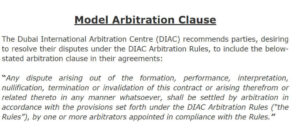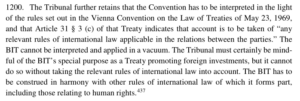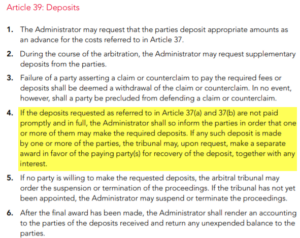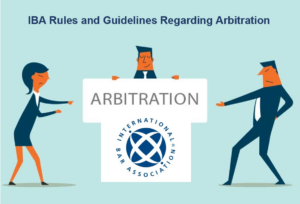The Dubai International Arbitration Centre (DIAC) is one of the largest arbitration institutions in the Middle East. It was originally established in 1994 by the Dubai Chamber of Commerce and Industry as the Centre for Commercial Conciliation and Arbitration.[1] The same year, the 1994 DIAC Conciliation & Arbitration Rules were released. They were subsequently revised […]
News
How to Initiate an LMAA Arbitration
Initiating an LMAA arbitration is a simple process: it normally requires serving a Notice of Arbitration directly to the opposing side, which includes only skeletal information about the parties, the constitution of the arbitral tribunal, the claims and the relief sought. We discuss the role of the LMAA in an LMAA arbitration (Section I), the […]
Human Rights Law and Investment Arbitration
Human rights law is relevant in the realm of investment arbitration. This does not come as a surprise: both investors and host States may turn to public international law provisions, including human rights treaties, to reinforce their respective positions or to put forward autonomous claims. While little attention was initially given to human rights law […]
Aceris Law Secures USD 34,539,957 Final Award for American Client in ICDR Arbitration
Aceris Law is pleased to announce that it has secured another favorable arbitration award for a well-deserving client, this time for an American client in a cloud storage-related industry, facing an East Asian party in an ICDR-administered arbitration. While the case is non-public, the arbitration, governed by New York law, concerned issues of American securities […]
Non-Payment of Advances on Costs in Arbitration
The commencement of international arbitration is conditioned by payment of advances on costs, after the payment of a filing fee. Unlike domestic courts, which are publicly-funded, advances on costs are needed to pay the fees of private arbitrators. If the arbitration is administered, costs also need to be advanced to pay the administrative costs of […]
Effective Means Provision in Investment Arbitration
In addition to typical standards of investment protection such as fair and equitable treatment, national treatment or most-favored nation treatment, investment treaties sometimes contain an effective means of asserting claims and enforcing rights provision, commonly known as an “effective means provision“. This provision figures mainly in investment treaties concluded by the USA, such as the […]
International Arbitration and Intellectual Property (IP) Disputes
International arbitration is an increasingly popular method for the resolution of intellectual property (“IP”) disputes. This does not come as a surprise, considering the increasing importance of intellectual property to economic prosperity, international trade and commercial profits in today’s globalized and digitalized world. Traditionally, IP disputes were mainly heard by national courts. This is because […]
IBA Rules and Guidelines Regarding International Arbitration: An Overview
The International Bar Association (“IBA”) has published several rules and guidelines relating to international arbitration which are designed to streamline the arbitral procedure and facilitate the use of international arbitration as an alternative means of dispute resolution. In principle, the IBA rules and guidelines are not legal provisions and thus do not override any applicable […]
International Arbitration in the Seychelles
International arbitration in the Seychelles is primarily governed by the Commercial Code of Seychelles, Chapter 38 (1 January 1977) Title IX (the “Commercial Code Act”) and supplemented by the Seychelles Code of Civil Procedure, Chapter 213 (15 April 1920, as amended) (the “Code of Civil Procedure”). The legal system of the Seychelles represents a peculiar […]








